Podcast: Play in new window | Download (Duration: 44:52 — 82.5MB)
Controlled Clinical Trials Show Positive Trends for Herbal Medicines
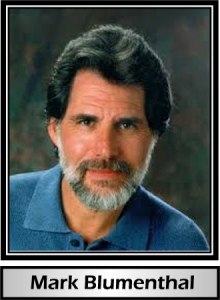
Herbs have been the medicines of history for thousands of years. Every culture around the world has it’s healing traditions and has knowledge of the plants used for health and healing. It was not long ago that herbs were disparaged as folk lore and old wives tales. When I was a kid the slogan on television was “Better Living Through Chemistry”. We believed everything new was good and the old was quaint.
When I started my career in natural health, people like me were considered health nuts, or food faddists or quacks. There are still those who hold and propagate those negative views. You may have heard it said that there is no science proving nutrients and herbs are beneficial. When you hear that said, you can know immediately one of two things. Either the person is clueless or they are purposely avoiding the reality that herbal medicines (and other nutrients) have a large body of science revealing benefits to human health.
As a listener to HealthQuestPodcast.com, you know we are all about exploring the science of health and nutrition. I believe we are in a golden age of nutritional science. We can explore things down to the molecular level and we can understand much more about how plants exert their benefits on human health. I have always found it interesting that so many people think that man-made molecules can affect health, but at the same time believe that it is not possible that plant compounds found in herbs can’t possibly be effective as medicine. That is a bias that is not supported by the science.
I’ve come to accept the fact that much of what we think is true, isn’t. Opinions on whether herbs are effective or not, does not change the truth of whether they are effective or not and for what. So how do we know what herbs are good for? How do we gain knowledge and confidence? What is the current state of science regarding herbs and phytomedicines? That is the topic of this interview.
My guest is Mark Blumenthal. Mark is the co-founder and director of the American Botanical Council (ABC) now celebrating it’s 30th year. I have known Mark for most of those years and I will suggest that he has been one of the most vigorous pioneer champions of the modern herbal industry. He has been a driving force in proving to the world that herbal medicines are viable, valuable and scientifically valid. The world of herbs is very different than it was 40 years ago when Mark and I were getting started. I am grateful for the pioneers who had the vision and energy to bring the nutrition industry into the current age of science and popularity. We are not here by accident. Mark is one of those visionaries.
The American Botanical Council Mission
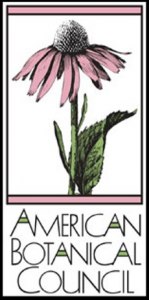 To provide education using science-based and traditional information to promote responsible use of herbal medicine — serving the public, researchers, educators, healthcare professionals, industry and media.
To provide education using science-based and traditional information to promote responsible use of herbal medicine — serving the public, researchers, educators, healthcare professionals, industry and media.
Since 1988, the American Botanical Council (ABC) has been educating consumers, healthcare professionals, researchers, educators, industry and the media on the safe and effective use of herbs and medicinal plants. Click here to read the history and highlights of ABC (through 2013) and the first 100 HerbalGrams. ABC is an independent, nonprofit organization supported by thousands of members around the world.
ABC publishes
- HerbalGram, a peer-reviewed quarterly journal;
- HerbClip, a twice-monthly series of summaries and critical reviews of recently published herbal literature;
- HerbalEGram, a monthly electronic publication;
- Herbal News & Events, a weekly update on events and media; and the Botanical Monitor, a quarterly newsletter addressing botanical adulteration issues.
- ABC is also the publisher of four books, including The ABC Clinical Guide to Herbs, a continuing education and reference book, which contains extensive monographs on the safety and efficacy of 30 popular herbs.
In addition, ABC works through its Media Education program to respond to inaccuracies and misrepresentations in the media and provide proactive, science-based information about herbal medicine. ABC also provides an internship program for students of pharmacy and dietetics, as well as other training and certification programs.
If you are interested in the science of herbs you should join ABC. Your membership provides critical financial support for these important programs and services, and brings you valuable benefits. Join Today. FYI – we receive no compensation from ABC if you join.
We now have access to herbs from around the world. How do we know which herbs are effective? How do we know which herbs are scientific studied? How do we know the herbs in our capsules and teas are what they say they are? What about adulteration and fraud? These are real issues that consumers face in the marketplace. As herbs become more popular the need for third party certifications become more important to prove that what’s stated on the label is truly what is in the product. And we need unbiased sources such as ABC to help us understand the science and point in direction of clinically understood products.
Botanical Adulterants Prevention Program

The adulteration of herbal products is a huge challenge for manufacturers and consumers. There is evidence of numerous products being spiked with other ingredients so the appear to test in the acceptable range. Three leading nonprofit organizations have initiated this large-scale program to educate members of the herbal and dietary supplement industry about ingredient and product adulteration. Partners include the American Botanical Council (ABC), the American Herbal Pharmacopoeia (AHP), and the University of Mississippi’s National Center for Natural Products Research (NCNPR). To date, the program has published 38 extensively peer-reviewed articles, Botanical Adulterants Bulletins, Laboratory Guidance Documents, and Botanical Adulterants Monitor e-newsletters. All of the program’s publications are freely available on the program’s website.
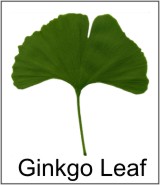 “Ginkgo leaf extract is one of the world’s most heavily researched phytomedicines,” said Mark Blumenthal, founder and executive director of ABC and BAPP. “Millions of consumers utilize ginkgo extracts for a range of health reasons based on frequently positive outcomes from published clinical trials. However, the ginkgo products that they are buying, if they are adulterated, may not be adequate to perform as well as those ginkgo extracts shown effective in the clinical research. As in many cases of adulteration and fraud, this creates a disservice to the public.” Dr. Gafner commented: “Adulteration appears to be frequent, with some researchers reporting that over 70% of the samples tested do not contain authentic ginkgo leaf extract.
“Ginkgo leaf extract is one of the world’s most heavily researched phytomedicines,” said Mark Blumenthal, founder and executive director of ABC and BAPP. “Millions of consumers utilize ginkgo extracts for a range of health reasons based on frequently positive outcomes from published clinical trials. However, the ginkgo products that they are buying, if they are adulterated, may not be adequate to perform as well as those ginkgo extracts shown effective in the clinical research. As in many cases of adulteration and fraud, this creates a disservice to the public.” Dr. Gafner commented: “Adulteration appears to be frequent, with some researchers reporting that over 70% of the samples tested do not contain authentic ginkgo leaf extract.
So what’s a consumer to do?
Who do you trust? These days trust is established by the connections companies have. Do companies have third party certifications? Do companies support groups like the American Botanical Council. You can see a list of ABC supporters on their website. There are very transparent in this way. Do companies use trademarked branded clinically studied raw materials or not? Is the company forthcoming and transparent with it’s customers. Does the company have awards that recognize their quality and innovation within the industry? Is the company or product being recommended by a knowledgeable person? These are some of the ways you can vet companies and experts and products. One serious mistake is to assume all things are equal and everyone can be trusted. If you are interested in herbs I highly recommend that you look to the American Botanical Council.
About Mark Blumenthal
With more than 43 years of diverse experience as an herbal advocate, consultant, educator, researcher, writer, and advisor, Mr. Blumenthal has an extensive comprehensive background in the area of herbs and medicinal plants. Since 1988, he has been an educator and researcher in his role as Executive Director of ABC, and has written hundreds of articles, reviews, book chapters, and forewords on herbal subjects.
Mark Blumenthal is the Founder and Executive Director of the American Botanical Council (ABC). Mr. Blumenthal is the Editor-in-Chief and Publisher of HerbalGram, an international peer-reviewed quarterly journal, the contents of which reflect the educational goals of ABC. He is also Founder and Director of the ABC-AHP-NCNPR Botanical Adulterants Program, a consortium of nonprofit organizations that researches and educates industry members and other stakeholders on the adulteration of botanical raw materials, extracts, and essential oils in the global supply network. ABC is partnered with the American Herbal Pharmacopoeia and the University of Mississippi’s National Center for Natural Product Research, a U.S. Food and Drug Administration Center of Excellence in botanical laboratory analysis.




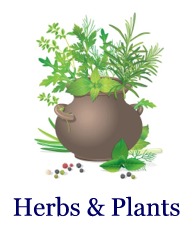

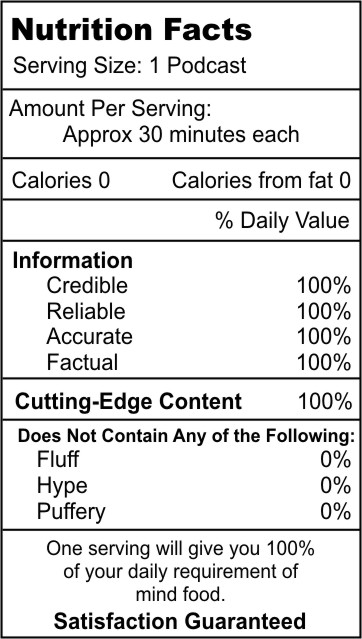




{ 0 comments… add one now }